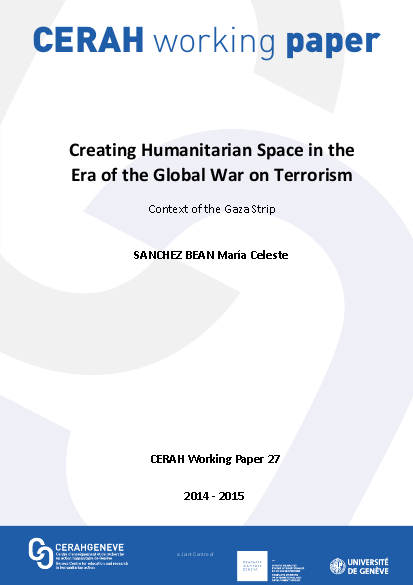
This dissertation analyses how humanitarian space is created in the Gaza Strip in the context of the Global War on Terrorism (GWOT) since Hamas came to power in 2007. By adopting a definition of ‘humanitarian space’ as a political arena, it focuses on the negotiated nature of this space and the role played by States and humanitarian international non-governmental organizations (INGOs) in its creation. In this line, this research explores how States and humanitarian INGOs interpret the context of Gaza, and its consequences for humanitarian action. With the GWOT acting as a framework, the analysis reveals that the strategy of States to defeat Hamas has focused on targeting its welfare system, both by imposing the blockade and by controlling the provision of aid, including that of INGOs. On the other hand, it suggests that INGOs’ interpretation of their role as neutral and apolitical has led them to disregard the very political nature of their activities in Gaza, and to be instrumentalized in the war against Hamas.
